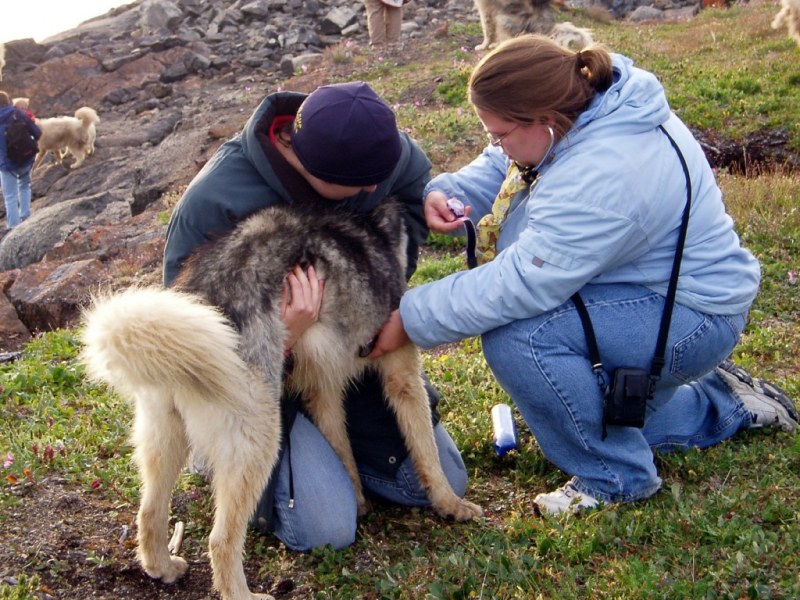The Chinook Project relaunches after three-year hiatus

The Atlantic Veterinary College (AVC) is pleased to announce that the Chinook Project will relaunch after a three-year hiatus due to COVID-19 restrictions. The first post-COVID-19 clinic will be offered in Port Hope Simpson, which is located on the southeastern Labrador coast, in June 2022.
The Chinook Project sets up temporary veterinary clinics to provide free essential veterinary care to dogs living in remote communities in Canada’s North. Each clinic is staffed with up to four volunteer veterinarians and technicians and up to five fourth-year veterinary students. The host communities support the project by providing accommodations and assistance in organizing the clinic locally.
The Project participants only go to communities where they are invited, performing services that are requested by the community and the animal owners. Veterinary procedures that are commonly provided are spays and neuters, vaccinations, deworming, parasite control, and education about basic animal welfare.
“In 2020 and 2021, it was very hard to tell communities that we had to cancel clinics which had been planned for years,” says Dr. Marti Hopson, co-coordinator of the Chinook Project. “The cancellation was disappointing to the owners of these animals, and disappointing for the veterinary students, technicians, and faculty members. Without on-going clinics, several of the communities we have visited in the past are having a difficult time with dog overpopulation, bite incidents, and infectious diseases such as rabies, parvovirus, or distemper- all of which can be fatal.”
Chinook Project team members are able to learn about and experience the North firsthand through community members and organizers. They are treated to informal activities, such as nature hikes or iceberg sightings, and visit schools or community centres to meet local residents and gain a better understanding of their culture.
“We feel this project is an essential service, as part of the One Health initiative, which recognizes the importance of the relationship between the health of humans, animals, and their environment,” explains Dr. Hopson. “As well, team members learn valuable cultural lessons, as well as intensive experience in surgery, anesthesia, and medicine.”
Now that COVID-19 restrictions have eased, The Chinook Project hopes to continue to provide services to Northern communities. To learn more about The Chinook Project please visit their website at https://www.chinookproject.org/.
The Chinook Project is generously supported by donors Boehringer Ingelheim, Zoetis, Ann McCain Evans, The Rathlyn Foundation, and the Province of Newfoundland and Labrador.